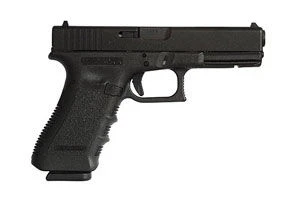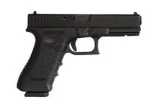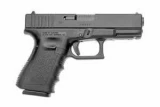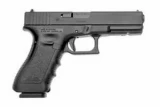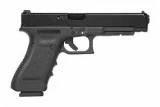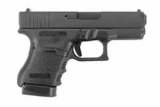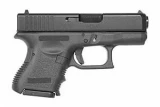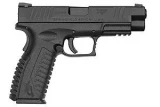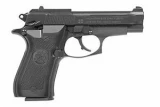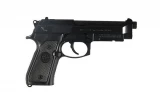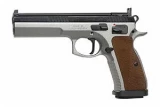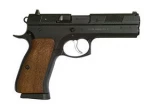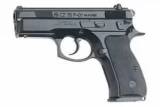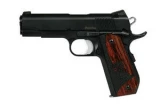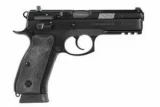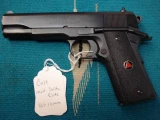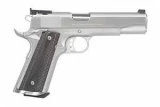Glock 22 Gen 4 vs Smith & Wesson Model 1 1/2 First Issue
Put handguns head to head to compare caliber and more.
|
$806.15
|
vs |
$500.00
|
| Handguns | Glock 22 Gen 4 | Smith & Wesson Model 1 1/2 First Issue |
|---|---|---|
| Summary | ||
| Rating | ||
| Rank | ||
| Action | Safe Action | Single Action |
| Caliber | .40 S&W | |
| Capacity | 15+1 | 5 |
| Finish | Black | |
| Sights | Fixed | Fixed |
| Barrel Length | 4.49" | |
| Gun Type | Revolver | |
| Details | ||
| Brand | Glock | Smith & Wesson |
| Reviews | See 3 Reviews | N/A |
| Prices | ||
| MSRP | $789.15 | $495.00 |
| Used Price | $552.41 | $346.50 |
| Sale Price | $710.24 | $445.50 |
Handguns Descriptions
Glock 22 Gen 4
The GLOCK 22 Gen4, in .40, introduces revolutionary design changes to this model of perfection that the majority of law enforcement across the country put their trust in every day. The Modular Back Strap design of the G22 Gen4 lets you instantly customize its grip to adapt to an individual shooter's hand size. The surface of the frame employs the new scientifically designed, real-world-tested, Gen4 rough textured technology. Internally, the new GLOCK dual recoil spring assembly substantially increases the life of the system. A reversible enlarged magazine catch, changeable in seconds, accommodates left or right-handed operators. The G22 Gen4 .40 caliber retains the GLOCK accessory rail for your attachments.
Smith & Wesson Model 1 1/2 First Issue
The Smith & Wesson Model 1+1⁄2 was Smith & Wesson's second .32 caliber revolver, intended to combine the small size and convenience of the .22 caliber Model 1 with the larger caliber of the 6-shot "belt sized" Model 2, which was introduced in 1861. Chambered in .32 Rimfire, its cylinder held 5 shots. It was produced in three varieties from 1865 through 1892, with total production exceeding 223,000. The Model 1+1⁄2 had three issues. The first two (known as the first and second issues) were "tip-up" revolvers with the barrel release catch located on the side of the frame in front of the trigger, while the third (known as the "Model 1+1⁄2 Single Action Revolver") was a "top-break", with the barrel release catch located on the top of the frame, just in front of the hammer.

